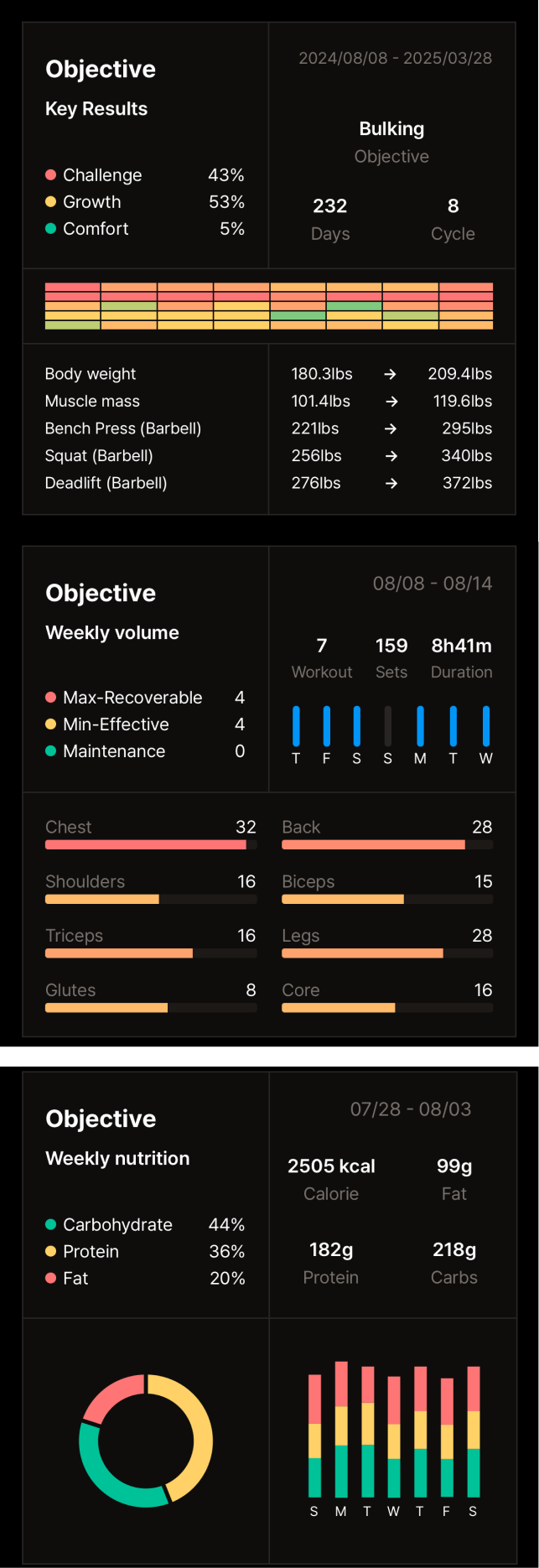Protein, Carbs, and Fats Explained
Imagine trying to build a house without knowing what bricks, wood, or concrete do. That's what it's like trying to eat healthily without understanding macronutrients like protein, carbs, and fats. These essential nutrients are the foundation of a balanced diet, providing your body with the energy it needs to function and thrive. For fitness enthusiasts, understanding macronutrients is particularly crucial for optimizing performance and achieving fitness goals. This article will break down the roles, benefits, and sources of protein, carbohydrates, and fats, empowering you to make informed dietary choices.
What Are Macronutrients?
Definition and Importance of Macronutrients
Macronutrients are the nutrients your body needs in large quantities to provide energy and support various bodily functions. They are the building blocks of your diet, playing a critical role in everything from muscle growth and repair to hormone production and brain function. Understanding their individual roles is the first step towards achieving optimal health. Each macronutrient provides a specific amount of energy, measured in calories: protein and carbohydrates each provide 4 calories per gram, while fat provides 9 calories per gram.
Role in the Body
Each macronutrient contributes uniquely to your body's processes. Carbohydrates serve as the primary and quickest source of energy. Protein is essential for building and repairing tissues, including muscle. Fats support hormone production, insulation, and cell structure. A balanced intake of all three is vital for overall well-being.
Protein: The Building Block
Functions of Protein
Protein is often associated with muscle building, but its functions extend far beyond that. It's crucial for repairing tissues, producing enzymes that facilitate chemical reactions, and creating hormones that regulate various bodily functions. Proteins are made up of smaller units called amino acids, some of which your body can produce (non-essential amino acids), while others must be obtained through your diet (essential amino acids).
Sources of Protein
Protein can be found in a variety of foods, both animal-based and plant-based. Excellent sources include meat, poultry, fish, eggs, dairy products, beans, lentils, tofu, nuts, and seeds. Varying your protein sources ensures you get a wide range of essential amino acids.
| Protein Source | Type | Benefits | |----------------------|--------------|---------------------------------------------| | Meat, Poultry, Fish | Animal-based | Complete protein, high bioavailability | | Eggs | Animal-based | Complete protein, versatile | | Dairy | Animal-based | Good source of calcium and other nutrients | | Beans, Lentils | Plant-based | High in fiber, affordable | | Tofu | Plant-based | Versatile, good source of iron | | Nuts, Seeds | Plant-based | Healthy fats, fiber |
Protein Intake and Fitness
For individuals focused on fitness, adequate protein intake is crucial for muscle growth and recovery after exercise. The optimal protein intake varies depending on factors like activity level and individual goals. Consult with a healthcare professional or registered dietitian to determine your specific needs.
Carbohydrates: The Quick Energy Source
Functions of Carbs
Carbohydrates are the body's preferred and quickest energy source. They are broken down into glucose, which fuels your cells and provides the energy needed for daily activities.
Types of Carbohydrates
Carbohydrates are categorized as simple or complex based on their chemical structure. Simple carbs, found in sugary foods and drinks, are quickly digested and can cause rapid spikes in blood sugar. Complex carbs, found in whole grains, fruits, and vegetables, are digested more slowly, providing sustained energy.
Healthy Sources of Carbs
Choosing healthy carbohydrate sources is essential for maintaining stable energy levels and overall health. Focus on fruits, vegetables, whole grains, and legumes. These provide not only energy but also essential vitamins, minerals, and fiber.
Carbs and Fitness
Carbohydrates play a vital role in fitness, particularly in pre- and post-workout nutrition. Consuming carbs before a workout provides energy to fuel your exercise, while consuming carbs after a workout helps replenish glycogen stores and promote muscle recovery.
Fats: Essential for Health
Functions of Fats
Fats are often misunderstood, but they are crucial for various bodily functions. They play a key role in hormone production, provide insulation to regulate body temperature, and are essential components of cell structure.
Healthy vs. Unhealthy Fats
Not all fats are created equal. Unsaturated fats, found in avocados, nuts, seeds, and fatty fish, are considered healthy fats and are beneficial for heart health. Saturated fats, found in red meat and dairy products, should be consumed in moderation. Trans fats, found in many processed foods, should be avoided as they are detrimental to health.
| Fat Type | Source Examples | Health Impact | |----------------|------------------------------|---------------------------------| | Unsaturated | Avocados, nuts, olive oil | Beneficial for heart health | | Saturated | Red meat, dairy products | Consume in moderation | | Trans Fats | Processed foods, baked goods | Avoid |
Fats and Metabolism
Fats are also utilized for energy, especially during periods of low carbohydrate intake, such as in ketogenic diets. In such situations, the body breaks down fats into ketone bodies, which can be used as an alternative fuel source.
Balancing Your Macronutrient Intake
Finding the Right Balance
Finding the right macronutrient balance is key to optimizing your health and achieving your fitness goals. The ideal ratio varies depending on individual needs and goals. Consulting with a healthcare professional or registered dietitian can help you determine the optimal balance for you.
Common Diets and Macronutrients
Different diets emphasize different macronutrient ratios. For example, ketogenic diets restrict carbohydrates and prioritize fats, while paleo diets focus on whole, unprocessed foods and often have a higher protein intake. Understanding these differences can help you choose a dietary approach that aligns with your needs.
Practical Tips for Meal Planning
Incorporating a balanced mix of protein, carbohydrates, and fats into your daily meals is easier than you think. Plan your meals around lean protein sources, healthy carbohydrates, and healthy fats. Use portion control and be mindful of your overall calorie intake. Preparing meals in advance can help you stay on track.
Conclusion
Protein, carbohydrates, and fats are the fundamental building blocks of nutrition. Understanding their individual roles, benefits, and sources is crucial for making informed dietary choices. By applying this knowledge, you can optimize your diet to support your overall health, fitness goals, and well-being. Remember, a balanced approach is key to a healthy lifestyle. Consider exploring further resources on nutrition and diet planning for more in-depth learning, empowering you to make informed choices about your dietary intake. This will further enhance your understanding and enable you to personalize your nutritional plan effectively. Making informed dietary decisions based on your understanding of macronutrients will contribute to achieving your health and fitness goals.

